Filter by

Social Movements in China and Hong Kong: The Expansion of Protest Space
The starting point of this book is the acknowledgement that on one side Chinese individuals, freer from the constraints of the State, have to rely on their own efforts for their well-being and, on the other side, in some circumstances, they gather together to defend their interests. The individualisation of society goes hand in hand with the collective movements that emerged as a result of indi…
- Edition
- -
- ISBN/ISSN
- 9789089641311
- Collation
- -
- Series Title
- -
- Call Number
- 305.8 SOC s
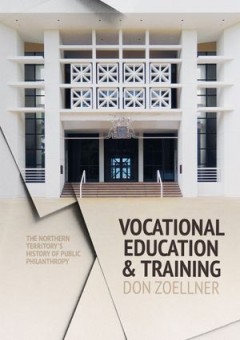
Vocational Education and Training The Northern Territory’s history of publ…
This book represents the first consolidated history of vocational education and training in the Northern Territory. Not only does the story present a chronological account of events, people and institutions, it also offers an explanation of how the system actually works and this has application well beyond the Territory. The mix of historical accounting and operational analysis comes from a uni…
- Edition
- -
- ISBN/ISSN
- 9781760460990
- Collation
- -
- Series Title
- -
- Call Number
- -
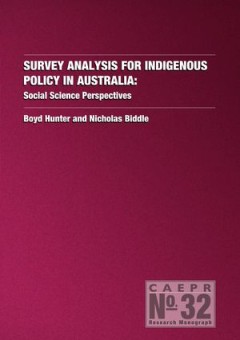
Survey Analysis for Indigenous Policy in Australia: Social Sciences Perspectives
Indigenous policy is a complex domain motivated by a range of social, cultural, political and economic issues. The Council of Australian Governments ‘closing
- Edition
- -
- ISBN/ISSN
- 9781922144188
- Collation
- -
- Series Title
- -
- Call Number
- 301 HUN s
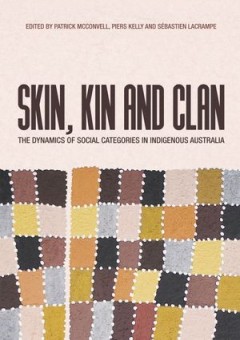
Skin, Kin and Clan: The dynamics of social categories in Indigenous Australia
Australia is unique in the world for its diverse and interlocking systems of Indigenous social organisation. On no other continent do we see such an array of complex and contrasting social arrangements, coordinated through a principle of ‘universal kinship’ whereby two strangers meeting for the first time can recognise one another as kin. For some time, Australian kinship studies suffered f…
- Edition
- -
- ISBN/ISSN
- 9781760461638
- Collation
- -
- Series Title
- -
- Call Number
- 301 SKI s
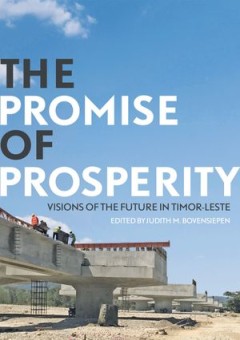
The Promise of Prosperity: Visions of the Future in Timor-Leste
For the people of Timor-Leste, independence promised a fundamental transformation from foreign occupation to self-rule, from brutality to respect for basic rights, and from poverty to prosperity. In the eyes of the country’s political leaders, revenue from the country’s oil and gas reserves is the means by which that transformation could be effected. Over the past decade, they have formulat…
- Edition
- -
- ISBN/ISSN
- 9781760462529
- Collation
- -
- Series Title
- -
- Call Number
- 301 PRO p
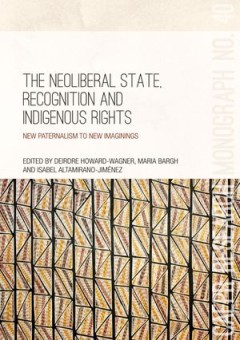
The Neoliberal State, Recognition and Indigenous Rights: New paternalism to n…
The impact of neoliberal governance on indigenous peoples in liberal settler states may be both enabling and constraining. This book is distinctive in drawing comparisons between three such states—Australia, Canada and New Zealand. In a series of empirically grounded, interpretive micro-studies, it draws out a shared policy coherence, but also exposes idiosyncrasies in the operational dynamic…
- Edition
- -
- ISBN/ISSN
- -
- Collation
- -
- Series Title
- -
- Call Number
- 994 NEO n
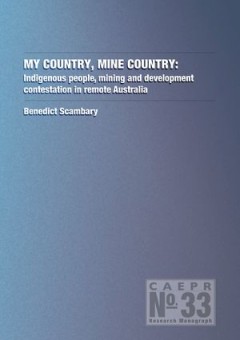
My Country, Mine Country: Indigenous people, mining and development contestat…
Agreements between the mining industry and Indigenous people are not creating sustainable economic futures for Indigenous people, and this demands consideration of alternate forms of economic engagement in order to realise such ‘futures’. Within the context of three mining agreements in north Australia this study considers Indigenous livelihood aspirations and their intersection with sustai…
- Edition
- -
- ISBN/ISSN
- 9781922144720
- Collation
- -
- Series Title
- -
- Call Number
- 340.115 SCA m
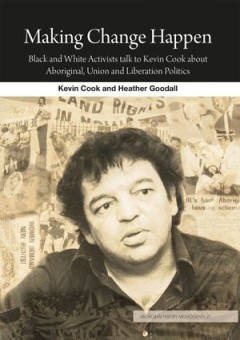
Making Change Happen: Black and White Activists talk to Kevin Cook about Abor…
This book is a unique window into a dynamic time in the politics and history of Australia. The two decades from 1970 to the Bicentennial in 1988 saw the emergence of a new landscape in Australian Indigenous politics. There were struggles, triumphs and defeats around land rights, community control of organisations, national coalitions and the international movement for Indigenous rights. The cha…
- Edition
- -
- ISBN/ISSN
- 9781921666728
- Collation
- -
- Series Title
- -
- Call Number
- 920 GOO m
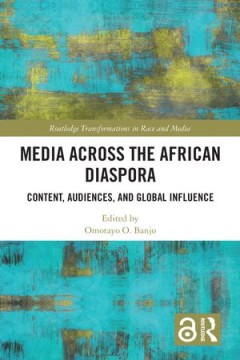
Media Across the African Diaspora Content, Audiences, and Influence
This volume gathers scholarship from varying disciplinary perspectives to explore media owned or created by members of the African diaspora, examine its relationship with diasporic audiences, and consider its impact on mainstream culture in general. Contributors highlight creations and contributions of people of the African diaspora, the interconnections of Black American and African-centered m…
- Edition
- -
- ISBN/ISSN
- 9781351660204, 1351660209
- Collation
- -
- Series Title
- -
- Call Number
- -
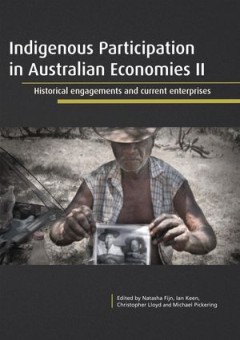
Indigenous Participation in Australian Economies II: Historical engagements a…
This is the second volume to emerge from a project on Indigenous participation in the Australian economy, funded by an Australian Research Council (ARC) Linkage Grant, and involving the cooperation of the School of Archaeology and Anthropology at The Australian National University and the National Museum of Australia. The Chief Investigators were Ian Keen, Chris Lloyd, Anthony Redmond, the Part…
- Edition
- -
- ISBN/ISSN
- 9781921862830
- Collation
- -
- Series Title
- -
- Call Number
- 330 IND i
 Computer Science, Information & General Works
Computer Science, Information & General Works  Philosophy & Psychology
Philosophy & Psychology  Religion
Religion  Social Sciences
Social Sciences  Language
Language  Pure Science
Pure Science  Applied Sciences
Applied Sciences  Art & Recreation
Art & Recreation  Literature
Literature  History & Geography
History & Geography